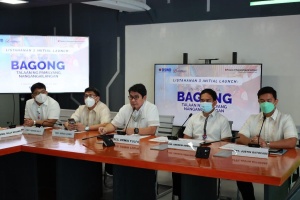
The Department of Social Welfare and Development (DSWD) assured the public that it will maximize the result of the third nationwide household assessment (Listahanan 3) or the National Household Targeting System for Poverty Reduction (NHTS-PR) during its soft launch on August 1, 2022.
According to DSWD Secretary Erwin T. Tulfo, the data from Listahanan 3 will serve as a basis for the new batch of Pantawid Pamilyang Pilipino Program (4Ps) household beneficiaries who will be included in the program.
“Listahan lang po ang binigay ng NHTO (National Household Targeting Office). Ibibigay pa po sa 4Ps. 4Ps will determine kung sino ang karapat-dapat kasi kailangan po talagang pag-aralan ng 4Ps mabuti dahil hindi po pwedeng lahat ay ipasok natin. We can only accommodate within the budget” (NHTO only provided a list. It will be given to 4Ps. The 4Ps will determine who are eligible. It is necessary to study the list carefully because we cannot admit everyone in the program. We can only accommodate within the budget), explained Secretary Tulfo.
Based on the result of Listahanan 3, the regions with the highest percentage of poor which was processed by Listahanan are Bicol Region, Western Visayas Region, and the Bangsamoro Autonomous Region of Muslim Mindanao (BARMM).
Likewise, the result of Listahanan 3 also showed that the regions with poor households who have no access to potable water include the BARMM, Cordillera Administrative Region (CAR), and Region VI or Western Visayas.
Meanwhile, NHTO Concurrent Director Andrew Ambubuyog explained the significance of the Listahanan 3 database.
“Ang ganitong talaan ng mahihirap o datos ay lubhang napakahalaga hindi lang sa pagbibigay ng serbisyo, dahil ito ay maaaring magamit sa mga pag-aaral kung papaano at kung ano ang angkop at nararapat na proyekto para sa mga pamilyang mahihirap sa bansa” (The list or data of the poor is significant, not only in providing services, but it can also be used in studies on how and what are the appropriate and necessary projects for the poor families in the country), said Director Ambubuyog.
Aside from government agencies, the public may access the result of Listahanan 3 through http://www.listahanan.dswd.gov.ph/L3INITIAL.
Listahanan is an information management system that establishes a database of poor households that will serve as basis in identifying potential beneficiaries for different social protection programs and services nationwide. Its main objective is to formulate a unified criterion for the identification of the ‘poor’ households through scientific means.
It can be recalled that the third nationwide household assessment started in 2019; however, because of the COVID-19 pandemic, the conduct of the house-to-house validation for the nationwide assessment was temporarily suspended to adhere to the government’s health and safety protocols and to mitigate the spread of the virus. The result was finalized in the last quarter of 2021.
As of December 2021, the Listahanan 3 database was able to determine 5,599,091 poor households from the 15,487,655 total households assessed. All encoded information was subjected to Proxy Means Test (PMT) for the generation of the list of poor households. The PMT is a statistical model that estimates the income of families using the proxy variables indicated in the Household Assessment Form (HAF) of potential beneficiaries.
The DSWD pledges to use the data to improve the access of social services of poor households around the country. ###


